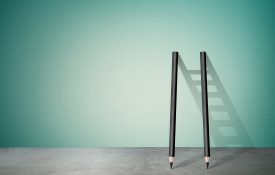-
Culture Wires the Brain: A Cognitive Neuroscience Perspective
Where you grow up can have a big impact on the food you eat, the clothes you wear, and even how your brain works. In a report in a special section on Culture and Psychology in the July Perspectives on Psychological Science, a journal of the Association for Psychological Science, psychological scientists Denise C. Park from the University of Texas at Dallas and Chih-Mao Huang from the University of Illinois at Urbana-Champaign discuss ways in which brain structure and function may be influenced by culture. There is evidence that the collectivist nature of East Asian cultures versus individualistic Western cultures affects both brain and behavior.
-
Signs of Autism May Show in Early Infancy
Yale Medical Group: Signs of autism may show up in babies as young as 1 month old, a new study shows. But the tip-offs are not the usual red flags, such as a lack of eye contact or smiling, the researchers noted. Instead, they found babies who needed neonatal intensive care and were later diagnosed with an autism spectrum disorder were more likely to have abnormal muscle tone and differences in their visual processing than babies who went on to develop normally after time in the neonatal intensive care unit (NICU). Read the whole story: Yale Medical Group
-
I Love Him, I Love Him Not
Scientific American: Over a decade ago, I devised a test for detecting attitudes and biases operating below the level of a person’s awareness. Known as the Implicit Association Test, or IAT, it is presently the most widely used of the measures of implicit attitudes that have been developed by social psychologists over the past 25 years. It has been self-administered online by millions, many of whom have been surprised—sometimes unpleasantly—by evidence of their own unconscious attitudes and stereotypes regarding race, age, gender, ethnicity, religion, or sexual orientation. Read the whole story: Scientific American
-
Is Your Memory Playing Tricks on You?
A new study claims that some of our vivid memories are simply figments of the imagination. Remembering events from our past that we know have never actually happened is actually a relatively common phenomenon, according to psychologists from the University of Hull. As part of the research study, which is the first of its kind and is published this week in the journal Psychological Science, more than 1600 students were asked to recall memories of events that they no longer believed had taken place. The results revealed that one in five had experienced these types of memories, and most of them related to when they were between four and eight years old.
-

Study Suggests Intervention for Overcoming Reading-Comprehension Difficulties in Children
Researchers identify a training program that could help children who are able to read text aloud but have difficulties understanding what they’ve read. Visit Page
-
Psychologists develop 2 potent new predictors of suicide risk
Science Centric: Two powerful new tests developed by psychologists at Harvard University show great promise in predicting patients' risk of attempting suicide. The work may help clinicians overcome their reliance on self-reporting by at-risk individuals, information that often proves misleading when suicidal patients wish to hide their intentions. Both new tests are easily administered within minutes on a computer, giving quick insight into how patients are thinking about suicide, as well as their propensity to attempt suicide in the near future. 'Experts have long sought a clear behavioural marker of suicide risk,' says Harvard Professor of Psychology Matthew K.

